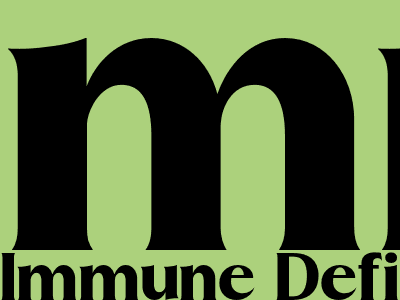Fighting Immune Deficiency Syndrome: A Comprehensive Guide
Understanding Immune Deficiency Syndrome
Immune Deficiency Syndrome (IDS) is a group of conditions that impair the body's immune system, making it vulnerable to infections and diseases. These conditions can be inherited or acquired later in life.
IDS affects the body's ability to fight off pathogens, leading to recurrent and severe infections. Symptoms vary depending on the type of IDS, but may include fatigue, fever, weight loss, and enlarged lymph nodes.
Types of Immune Deficiency Syndrome
Primary IDS
Primary IDS are caused by genetic defects that disrupt the development of the immune system.
- Severe Combined Immunodeficiency (SCID): Affects infants, who experience recurrent and life-threatening infections.
- X-linked Agammaglobulinemia: Occurs in males, characterized by low antibody levels.
- Common Variable Immunodeficiency (CVID): Causes variable levels of antibodies and impaired immune function.
Secondary IDS
Secondary IDS are acquired later in life due to factors such as:
- HIV/AIDS: Destroys immune cells, weakening the immune response.
- Cancer: Treatment regimens can suppress the immune system.
- Autoimmune Disorders: Cause the immune system to attack the body's own tissues, leading to immune dysfunction.
Diagnosis and Treatment of Immune Deficiency Syndrome
Diagnosis of IDS involves medical history, physical examination, and laboratory tests. Genetic testing can identify specific gene defects causing primary IDS.
Treatment depends on the type and severity of IDS. It may include:
- Immunoglobulin Replacement Therapy: Infuses antibodies into the body to boost immunity.
- Stem Cell Transplant: Replaces damaged immune cells with healthy ones.
- Antibiotics: Prevent and treat infections.
- Lifestyle Measures: Maintaining good hygiene, avoiding crowds during illness, and getting vaccinated.
Living with Immune Deficiency Syndrome
Living with IDS requires ongoing management and lifestyle adjustments:
- Regular Medical Appointments: Monitor immune function and adjust treatment plans.
- Infection Prevention: Taking precautions to avoid infections is crucial, such as frequent handwashing, wearing masks, and limiting contact with sick individuals.
- Emotional Support: Dealing with chronic health conditions can be emotionally challenging; seeking support from family, friends, or support groups can provide comfort and encouragement.
Conclusion
Immune Deficiency Syndrome is a spectrum of conditions that impair the immune system, making Individuals vulnerable to infections and diseases. Understanding the different types, diagnosis, treatment, and lifestyle management strategies are essential for improving outcomes and enhancing the quality of life for individuals living with IDS.

Komentar